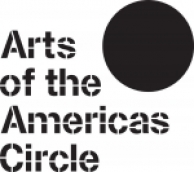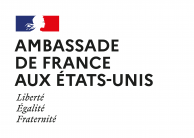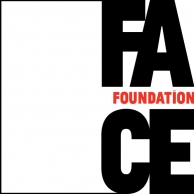12:00 to 1:00 pm ET
Share
Caribe Hostil: Narratives of Displacement in Puerto Rican Contemporary Art
Americas Society hosts Dr. Yarimar Bonilla in conversation with artists Ricardo Cabret, Sofía Gallisá Muriente and Roberto “Yiyo” Tirado.
Overview
Americas Society is pleased to welcome Dr. Yarimar Bonilla, in conversation with artists Ricardo Cabret, Sofía Gallisá Muriente, and Roberto "Yiyo" Tirado to discuss topics that have become increasingly relevant for the Puerto Rican community, including displacement, gentrification, remote working, and financial hardship. This program is presented in conjunction with our current exhibition Tropical Is Political: Caribbean Art Under The Visitor Economy Regime, curated by Marina Reyes Franco.
Join us via Zoom on Friday, November 4th, from 12:00 to 1:00 pm. Register for the panel.
About the Moderator
Yarimar Bonilla is a political anthropologist, professor, writer, and the director of the Center for Puerto Rican Studies at Hunter College. She is the author and editor of numerous scholarly publications including: Non-Sovereign Futures: French Caribbean Politics in the Wake of Disenchantment (2015), Aftershocks of Disaster: Puerto Rico Before and After the Storm (2019), and Trouillot Remixed (2022). She is also a founder of thePuerto Rico Syllabus Project. In addition, Yarimar is a prominent public intellectual and a leading voice on Caribbean and Latin-X politics. She writes a monthly column in the Puerto Rican newspaper El Nuevo Día titled “En Vaivén,” is a regular contributor to publications such as The New York Times, The Washington Post, and The Nation. Her current research—for which she was named a 2018-2020 Carnegie Fellow—examines the politics of recovery in Puerto Rico after Hurricane Maria and the forms of political and social trauma that the storm revealed.
About the Artists
Ricardo Cabret is a Puerto Rican artist and scientist based in Queens, New York. Cabret’s interdisciplinary practice moves between computer science, code, and painting to reveal and unravel the tensions between humans, nature, and technology. Drawing from computing processes and references to the history of abstraction, Cabret cites landscapes while mining software architectures and cryptography in his multi layered compositions. Cabret holds an MS in computer science from the New York Institute of Technology, and a BS in electrical engineering from the University of Puerto Rico, Mayagüez. Cabret is the recipient of the AIM Bronx Museum Fellowship (2018-2019), and his work has been included in exhibitions at America's Society, Smack Mellon, Abrons Art Center, and the Bronx Museum, amongst others.
Sofía Gallisá Muriente is an artist whose research-based practice resists colonial erasures and claims the freedom of historical agency, proposing mechanisms for remembering and reimagining. Her work deepens the subjectivity of historical narratives and contests dominant visual culture through multiple approaches to documentation. She employs text, image andarchive as medium and subject, exploring their poetic and political implications. Sofía has been a fellow of the Smithsonian Institute, Annenberg Media Lab at USC, and the Flaherty Seminar. She participated in residencies such as Alice Yard (Trinidad and Tobago), FAARA (Uruguay), and Fonderie Darling (Montreal). She has exhibited in Documenta Fifteen, the Whitney Biennial, the Queens Museum, ifa Galerie in Berlin, Museo de Arte Contemporáneo de Puerto Rico, TEOR/éTica in Costa Rica and galleries like Km 0.2 and Embajada. From 2014 to 2020, she co-directed the organization Beta-Local, dedicated to knowledge exchange and transdisciplinary practices. She is currently a fellow of the Puerto Rican Arts Initiative and the Cisneros Institute at MoMA.
Roberto “Yiyo” Tirado has a bachelor’s degree in design and fine arts from the School of Fine Arts of Puerto Rico. In a general sense, the production of his works is based on territorial studies on the political, symbolic, and aesthetic construction of public spaces in Caribbean areas. In specific terms, the analysis model is directed mainly to critical reflection on landscape, architecture and how these concepts are related to the colonial status of Puerto Rico. Under a varied field of disciplines such as sculpture, engraving, painting, photography and installation, work processes are established that put in tension the contemporary forms of colonialism and the different tourist economies that shape the territory at a representational and social level. In 2015, he founded the contemporary art space KM 0.2, with the artist Karlo Andrei Ibarra, with whom he directs the project space located in the Santurce neighborhood. He has exhibited in various institutional spaces and in several countries such as: Mexico, Argentina, Peru, Chile, the United States, Spain and the Dominican Republic. His individual and collective exhibitions include: Tropical Blizz Ball Sale (Recinto Cerra, Puerto Rico), “Caribbean Blues” (Mana Contemporary Miami), “Dislocaciones” (La Liga del Arte, Viejo San Juan, Puerto Rico), “Doble Vara” (Casa Quien, Santo Domingo, República Dominicana), “Hipervisibilidad del paisaje” (Proyecto Local, San Juan, Puerto Rico). He lives and works in Puerto Rico.
Image credit: Sofía Gallisá Muriente. El enviado (aunque no sea más que una tregua) [The Envoy (Even If It’s Not More Than A Truce)], 2022. Video, 24 minutes. Courtesy of the artist
Major support for Tropical is Political in both Americas Society and MAC is provided by The Andy Warhol Foundation for the Visual Arts. The presentation of Tropical is Political: Caribbean Art Under the Visitor Economy Regime is made possible in part by the National Endowment for the Arts; by public funds from the New York City Department of Cultural Affairs in partnership with the City Council; by the New York State Council on the Arts with the support of the Office of the Governor and the New York State Legislature; by Etant donnés Contemporary Art, a program from Villa Albertine and FACE Foundation, in partnership with the French Embassy in the United States, with support from the French Ministry of Culture, Institut français, Ford Foundation, Helen Frankenthaler Foundation, CHANEL, and ADAGP; and by the Smart Family Foundation of New York. Americas Society acknowledges the generous support from the Arts of the Americas Circle contributors: Estrellita B. Brodsky, Virginia Cowles Schroth, Emily A. Engel, Diana Fane, Galeria Almeida e Dale, Isabella Hutchinson, Carolina Jannicelli, Vivian Pfeiffer, Phillips, Gabriela Pérez Rocchietti, Erica Roberts, Sharon Schultz, Diana López and Herman Sifontes, and Edward J. Sullivan. The presentation of the exhibition at MAC in San Juan is made possible by support from the Teiger Foundation.














